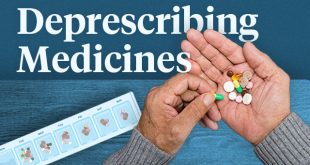According to a forecast by analysts of GlobalData, a British data analytics and consulting firm, Merck’s Keytruda is expected to reach the top of the bestselling pharma list in 2025, with sales of $22.5 billion. Keytruda (pembrolizumab), a humanized antibody used in cancer immunotherapy, is used for the treatment of lung cancer, melanoma, head and neck cancer, stomach cancer, and Hodgkin lymphoma.
Bristol-Myers Squibb and Pfizer’s Eliquis, with projected sales of $18.7 billion in 2025, is expected to be in second place, while Celgene’s Revlimid will be in third place with $12.4 billion in 2025 sales. Eliquis (apixaban), an anticoagulant for treatment and prevention of blood clots and prevention of stroke in patients with atrial fibrillation, is used specifically for prevention of blood clots after knee or hip replacement, and in people with a history of prior clots. Revlimid (lenalidomide), a thalidomide derivative initially intended for treatment of multiple myeloma, has also shown efficacy in hematological disorders known as myelodysplastic syndromes.
Bristol’s Opdivo is predicted to be in fourth place with $12 billion, and AbbVie and Johnson & Johnson’s Imbruvica fifth, with $11.9 billion. Opdivo (nivolumab), is used in combination with ipilimumab (a monoclonal antibody that activates the immune system) as a first line treatment for metastatic melanoma, if the cancer does not have a mutation in BRAF (a gene that encodes a protein called B-Raf). Imbruvica (ibrutinib), a small molecule drug that permanently binds to the Bruton’s tyrosine kinase protein, is used to treat B cell cancers like chronic lymphocytic leukemia, mantle cell lymphoma, and Waldenström’s macroglobulinemia.
AbbVie’s Humira, with predicted 2025 sales of $10.3 billion, is projected to take the number six slot, while Gilead’s new HIV drug, Biktarvy, will be in seventh place, with $10 billion in sales. Humira (adalimumab) is an immunosuppressant used to treat diseases like juvenile idiopathic arthritis, rheumatoid arthritis, psoriatic arthritis, psoriasis, hidradenitis, Crohn’s disease, ulcerative colitis, ankylosing spondylitis, and suppurativa, uveitis. Biktarvy, a complete treatment for HIV-1, is a combination of three antiretroviral drugs in one pill—50 mg bictegravir, 200 mg emtricitabine, and 25 mg tenofovir alafenamide.
The eighth, nine, and tenth places are projected to be taken by Pfizer’s Ibrance ($9 billion projected 2025 sales), J&J’s Stelara ($7.5 billion), and Eli Lilly and Boehringer Ingelheim’s Trulicity ($7.2 billion), respectively. Ibrance (palbociclib), a selective inhibitor of the cyclin-dependent kinases CDK4 and CDK6, is used for treating HR-positive and HER2-negative breast cancer. Stelara (ustekinumab), a human monoclonal antibody used for the treatment of psoriasis, has also been approved for Crohn’s disease in Australia and the U.S., and ulcerative colitis in the EU, for those not responding to more traditional treatments. Trulicity (dulaglutide), a glucagon-like peptide-1 receptor agonist (GLP-1 RA), is a once-weekly treatment of type 2 diabetes.
FiercePharma, https://urlzs.com/9YhEP
 Medicosnext
Medicosnext




